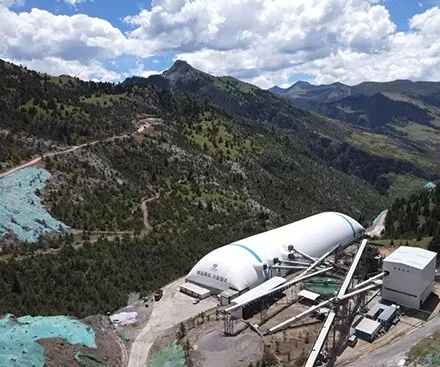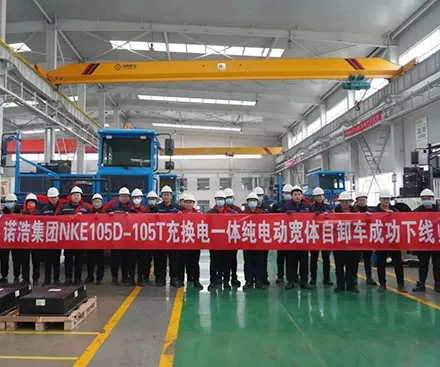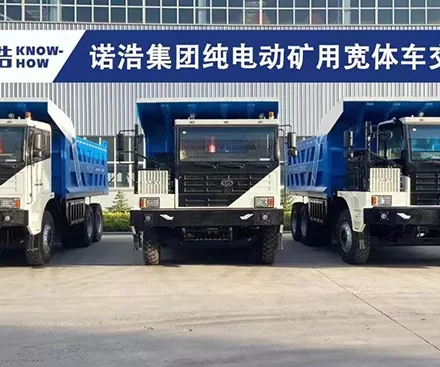Operating a dump truck requires skill, attentiveness, and adherence to strict safety protocols to prevent accidents and ensure the well-being of drivers and workers on-site. Here, we present essential dump truck driver safety tips that every operator should follow.
One of the critical safety measures is to never overload the upper portion of the truck bed. When a large amount of material is loaded in the upper portion of a raised box, the truck becomes off-balanced and unstable. Always load material evenly in the bed of the truck to maintain balance and stability. Overloading the upper portion can lead to tipping, especially when the truck is in motion or during the dumping process. Ensure that the load is distributed evenly, which helps in controlling the vehicle better and prevents potential accidents.
Dumping on level ground is crucial to prevent tipping and ensure safe operation. Before initiating the dumping process, check that the vehicle is on a level surface. Even a slight slope can cause the truck to tip over, posing serious risks to the driver and surrounding workers. When spreading material from a moving truck, it is essential to make sure the entire length is level. Uneven terrain can cause uneven pressure distribution, leading to instability. Regularly inspect the dumping area and ensure it is as flat as possible before proceeding.
Never dump when surfaces are loose or soft. When operating off-road or on construction sites, choosing the right spot to dump is critical. Soft or loose surfaces can shift under the load's weight, leading to potential tipping or sinking of the truck. Always opt for a firm and stable ground to dump the material. If unsure about the surface stability, conduct a quick assessment or consult with site engineers. This precaution helps in maintaining the truck’s stability and prevents accidents caused by ground shifting.
Staying in the cab with your seatbelt on during dumping is a key safety protocol. Exiting the cab while the dump truck is dumping increases the risk of severe injury. If the truck were to overturn, the safest place for the driver is inside the cab with the seatbelt fastened. Never attempt to jump from an overturning truck, as this can result in fatal injuries. Always ensure that you are securely seated and remain in the cab until the dumping process is complete and the truck is stable.
Many dump truck-related incidents occur due to proximity to people or other vehicles. Avoid dumping when trucks are parked side-by-side or when workers are in the dump area. The risk of tipping is higher in these scenarios, and the consequences can be fatal. Ensure that the dumping area is clear of personnel and other vehicles before beginning the process. Communicate clearly with dozer operators, surveyors, spotters, and other workers to keep a safe distance from the dumping zone. Implement strict site safety protocols to prevent unauthorized personnel from entering the dumping area.
Regular maintenance checks are essential for ensuring the safe operation of dump trucks. Inspect the hydraulic systems, tires, brakes, and lights routinely to ensure they are in good working condition. Faulty equipment can lead to accidents and breakdowns, putting the driver and others at risk. Keep a maintenance log and adhere to the manufacturer’s recommended service intervals. Address any issues immediately to maintain the truck’s safety and performance.
Ensure that all dump truck operators are adequately trained and certified. Proper training includes understanding the truck’s operation, safety protocols, and emergency procedures. Regular training updates and safety drills help in keeping the skills sharp and ensuring that the operators are aware of the latest safety standards. Certification programs often cover essential aspects of dump truck operation, including load management, hazard recognition, and safe driving practices.
Personal Protective Equipment (PPE) is vital for the safety of dump truck operators and nearby workers. Helmets, high-visibility vests, gloves, and steel-toed boots should be worn at all times on the job site. PPE provides an additional layer of protection against accidents and injuries. Ensure that all workers on the site are equipped with the necessary protective gear and understand its importance in maintaining safety.
Clear communication is crucial for safe dump truck operation. Use standard signals and communication devices to coordinate with other workers and equipment operators. Miscommunication can lead to accidents and hazardous situations. Ensure that all site personnel are familiar with the signals and protocols used on the site. Regular safety meetings and briefings can help reinforce the importance of clear communication.
Being prepared for emergencies is a key aspect of dump truck safety. Operators should be familiar with emergency procedures, including what to do in case of a truck tip-over or mechanical failure. Keep emergency contact numbers and first-aid kits readily accessible. Conduct regular emergency drills to ensure that all personnel know how to respond effectively in case of an incident.
Adhering to these safety tips can significantly reduce the risk of accidents and ensure a safer working environment for dump truck operators and site workers. By prioritizing safety and following best practices, we can achieve efficient and secure operations.
For more information on dump truck safety or to get in touch with a reliable supplier, please contact us for expert advice and assistance.

Jul. 23, 2022
View More
Jun. 15, 2022
View More
Jun. 01, 2022
View More